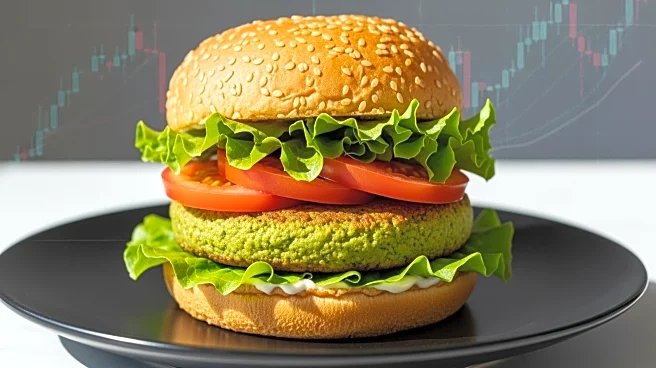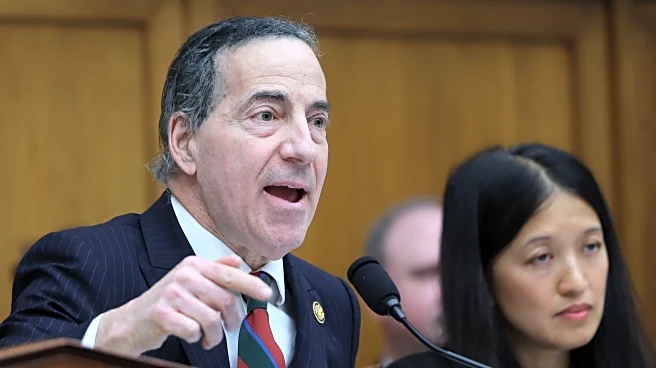What's Happening?
Beyond Meat's stock has plummeted to below $1, marking a significant downturn from its peak of $235 in 2019. This decline follows a controversial debt-swap deal that resulted in massive shareholder dilution.
Nearly 97% of the company's $1.15 billion in convertible notes were exchanged for new notes and approximately 316 million new shares, quadrupling the share count. The lock-up on these shares expired on October 16, leading to a flood of new shares in the market and further stock price decline. Amidst this financial turmoil, founder and CEO Ethan Brown resigned from the board, along with other directors, as new board members were appointed, including a bondholder representative.
Why It's Important?
The collapse of Beyond Meat's stock highlights the challenges faced by the plant-based meat industry, which has seen stagnating sales and increased competition. The company's financial woes, including shrinking sales and high debt, pose an existential threat unless it can reverse its current trajectory. Analysts have issued a 'Strong Sell' consensus, with concerns over the company's ability to stabilize its finances and demand. The broader implications for the industry include a shift in consumer preferences back to traditional meat, compounded by economic pressures and fierce competition from major food companies.
What's Next?
Beyond Meat faces the challenge of stabilizing its financial situation and regaining investor confidence. The upcoming Q3 2025 earnings report will be crucial in assessing whether the company can halt its revenue decline and manage its cash reserves effectively. The company aims to reach EBITDA break-even by 2026 through aggressive cost management. However, the potential for further stock dilution and the need for strategic partnerships or new product innovations remain critical for its survival. The market will closely watch for any signs of recovery or further decline in the coming months.
Beyond the Headlines
Beyond Meat's situation underscores the volatility of the plant-based meat market, which has transitioned from a fad to a more modest growth trajectory. The company's struggles reflect broader industry challenges, including consumer skepticism about the taste and price of meat alternatives. The leadership changes and governance overhaul indicate a shift in strategic control, with bondholders exerting influence over the company's future direction. The long-term viability of Beyond Meat and similar companies will depend on their ability to adapt to changing consumer preferences and economic conditions.











